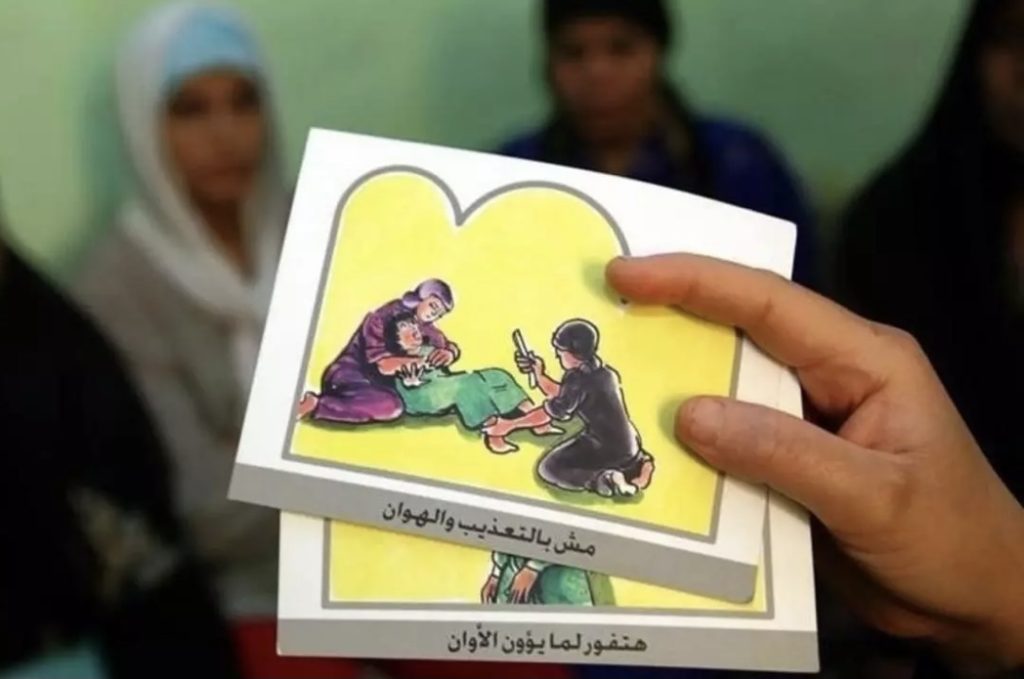Female Genital Mutilation (FGM), a procedure where some/all of the external female genitalia is removed, has a long history here in Egypt. It is carried out for non-medical reasons and is a huge part of women’s issues in Egypt and around the region.
FGM was outlawed in Egypt in 2008 and was upgraded to a felony in 2016 after a 17-year-old girl bled to death. The updated law, announced after this heinous crime, mandated jail sentences of up to seven years for those who carry out the procedure and up to three years for anyone requesting it. But have these penalties actually been applied?
Origins
FGM, in general, is not limited to a certain community or religion, however, there has been anthropological and historical research that shows that FGM started in Islam and Christianity. Some researchers have traced the practice to Egypt in the fifth century BC. Fran P. Hosken, the author of ‘The Hosken Report: Genital and Sexual Mutilation of Females’, states that the practice originated in Egypt, where circumcised and infibulated mummies were found.

Most girls undergo the procedure between the ages of nine and 12 and less than a third of the operations are carried out by doctors. It was found that 30 percent of married women believe the practice should be banned – but more than half were in favor of the procedure for religious reasons.
Egypt has one of the highest rates of female genital mutilation in the world and despite criminalizing the practice in 2008, it remains widespread. In some cultures, it is seen as a right of passage into womanhood and a condition of marriage. Some believe the genitals will be ‘unclean’ if the girl hasn’t undergone FGM.
The procedure is often carried out by a woman with no medical training. Anesthesia and antiseptic treatments are not generally used and the practice is usually carried out using knives, scissors, scalpels, pieces of glass or razor blades. The process and the effects of the physical therapy is the main reason to ban such a horrifying procedure.
The most common physical effects women can feel immediately after the surgery are heavy bleeding and infections that can lead to hepatitis B/C and HIV. The surgery itself also damages the nearby organs, such as the urethra, and in many cases, the experience can leave the girls with PTSD.
The Egyptian government has finally approved legal amendments which increase the maximum prison sentences to 10 years if the victim dies and medical professionals who get involved will face between 15-20 years depending on their role.
WE SAID THIS: Is FGM finally over? Check out In Support of Women’s Empowerment, Rania ElKhatib Talks Leadership, Passion, and Work-Life Balance!



